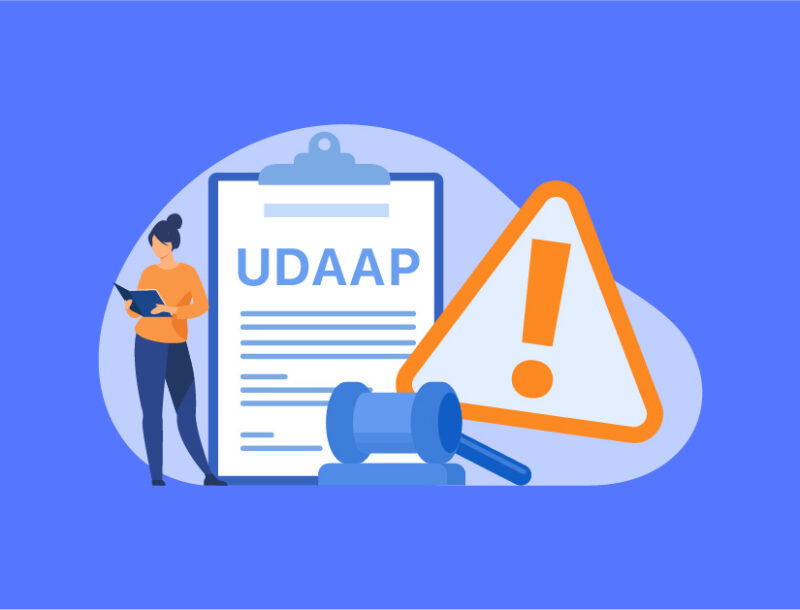Fair Lending – The Road Forward for Banks and Fintech

This past October, Rhonda McGill, PerformLine’s Senior Director of Client Solutions, moderated a panel discussion at the Lend360 Conference that took a deep dive into fair lending and what banks and fintechs need to be on the lookout for as newly appointed Director Rohit Chopra takes the reins at the Consumer Financial Protection Bureau (“CFPB” or “The Bureau”).
“All eyes are on the data, and fintechs need to show how they are ensuring equity in their lending practices,” said Rhonda McGill. “Banks need to make smart decisions on how they choose partners, how algorithms are determined, and the impact algorithms may have on lending decisions.”
Below is a recap of the discussion and our key takeaways.
Predicted Priority Issues in 2022 from the CFPB
Benjamin M. Saul, a shareholder in the Financial Regulatory and Compliance Practice from Greenberg Traurig, LLP, began by giving his predictions on what the CFPB would prioritize starting in 2022. The top priority is forecasted to be the impacts of the pandemic and fair servicing. The intersection of the Bureau’s top two concerns will help protect borrowers impacted by the pandemic and promote racial equity.
Another predicted priority is how the Bureau will go after algorithmic bias and develop guidance through supervision with standards on managing and mitigating those risks.
Since the appointment of Chopra, the philosophy for the CFPB is likely to lean more into the impact and advancement in supervisory enforcement issues, being more aggressive and creative with a tendency to back into decisions using data as a starting point.
Advice for the Payment Ecosphere
Keith J. Barnett, a partner at Troutman Pepper LLP, gave a word of advice for lenders, payment processors, and anyone else in the payment ecosphere-start looking at the complaints against you and the sources they are stemming from. If you have numerous consumer complaints, the CFPB will open an investigation and ultimately formulate a plan of action against your company.
The Chief Compliance Officer for Hancock Bank, Cindy Collins, expects that the environment at the CFPB will follow a more stringent interpretation of the current rules. The Bureau is going to be conservative in how they execute on issues, she says.
Fintechs Opening Up Alternative Options for the Underbanked and Unbanked
The panel then turned their focus on the results of FDIC’s biennial national survey, which shed light on trends surrounding the underbanked and unbanked. “One of the issues is that a disproportionately large amount of people of color fall into the underbanked category,” Barnett adds, “but fintech has opened up the financial system to many of these individuals.”
Barnett continues, there is a bias in FICO scores, and when broken down by race and gender, African Americans were often given a lower FICO score. When scoring potential customers, fintechs look at other factors, such as payment behavior, variety of accounts, and banking history. “Unlike a FICO score, these factors are more representative of a person’s ability to pay back a loan,” he stated. Many would agree that the innovations used by fintechs open up the world to those that might not be able to obtain credit in the traditional sense.
CFPB Fair Lending Report and Artificial Intelligence Information
The Bureau made it clear that they are looking into the use of AI in the payment sector as it applies to making lending decisions. The factors in AI monitoring are not facially discriminatory, but issues with the underwriting could lead to discriminative features. An example factor Barnett added could be education level, as most of the time, that level is based on income, which can spiral the issue into protection categories based on discrimination.
Best Practices and Takeaways
Wrapping up the panel, the speakers were asked to give their thoughts on the future of fair lending and some advice for those in that space.
- Those who are not on top of their fair lending compliance should prioritize it now before engaging with the Bureau or any other regulator.
- Banks should not be inefficient when considering regulatory challenges and taking risks to explore partnering with a fintech. It is an option that needs to be entertained; otherwise, you might be left behind as the space progresses.
- For fintech or nonbank lenders, know the compliance policies banks have in place and adopt them as if you were a bank. When these non-traditional institutions partner up with a bank, it is expected to have these policies in place; it will make your life easier if you are up-to-date on regulatory and compliance issues.
- There are many ways to maintain compliance, including partnering with a regtech who understands your space and can help discover and monitor regulatory issues. In Rhonda’s own words, “there are many opportunities for things to be done right in preparation for what’s to come.”
Get Out Ahead of Complaints and Enforcement
Lenders can get ahead of compliance risk by proactively handling and getting to the root of consumers issues before they get escalated to regulators.
PerformLine recently released our annual Consumer Complaint Risk Signal Report that looks at consumer complaint data submitted to the CFPB to uncover valuable observations and insights that help financial institutions identify and mitigate risk. The report unveils the nature of recent complaints and how regulators use them to help guide regulatory actions. In addition, this year’s report looks at data on specific topics such as mortgages & fair lending, credit cards, the buy now, pay later (BNPL) industry, and how COVID-19 impacted consumers and financial institutions.


